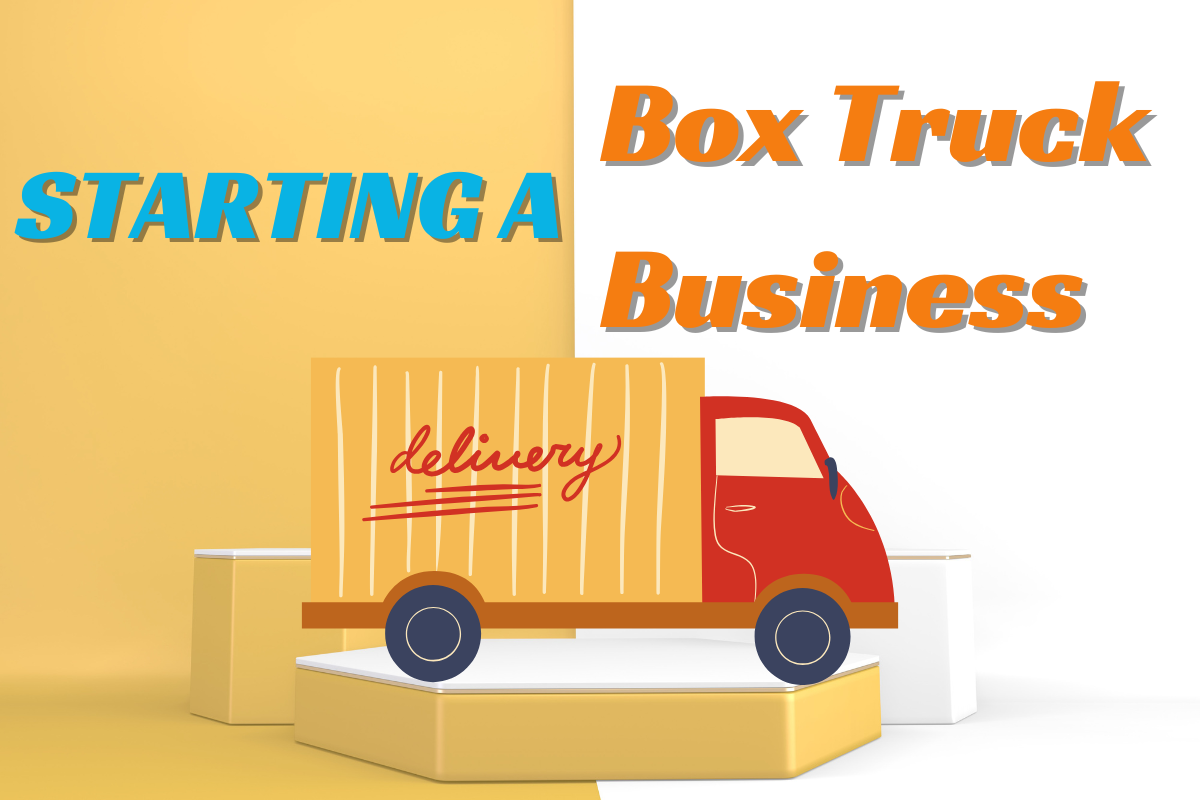
How to Start a Box Truck Business? Step-by-Step Guide for 2025
Ever wondered how people with no trucking experience are making over $10K a month from home? The secret might just be a box truck.
Are you thinking about starting your own business with low investment and high demand? A box truck business could be the perfect opportunity for you. With the rise of online shopping and the need for local deliveries, the demand for box trucks has grown rapidly.
This guide will walk you through everything you need to know about starting a box truck business in 2025 — from planning and registration to finding clients and growing your business. Let’s get started!
You will love to read: Can You Trade In a Financed Car?
What Is a Box Truck Business?
A box truck business is a type of transportation and delivery service that uses a box-shaped truck (also called cube vans or straight trucks) to move goods. These trucks are often used for:
-
Local deliveries
-
Moving services
-
Freight hauling
-
Retail or furniture transport
-
Amazon and FedEx deliveries
Because they are smaller than semi-trucks, box trucks are perfect for local or regional deliveries where speed and accessibility matter.
Why Start a Box Truck Business?
Here are some key benefits of starting this type of business:
-
Low startup costs compared to other trucking businesses
-
High demand in logistics and eCommerce sectors
-
Flexible schedule — work when you want
-
Multiple services you can offer (delivery, moving, junk removal, etc.)
-
Opportunity for growth — expand with more trucks or drivers
If you have a valid driver’s license and a strong work ethic, this business can be highly profitable.
Step 1: Understand the Box Truck Business Market

Before jumping in, you need to research your local area and target market to understand the box truck business landscape.
Do Market Research
Ask these questions:
-
Who needs box truck services in your area?
-
Are there local businesses, eCommerce brands, or warehouses nearby?
-
Is there competition?
-
What rates do others charge?
Identify Your Niche
Choosing a niche can help you stand out. You can focus on:
-
Last-mile delivery
-
Medical equipment transport
-
Moving services
-
Junk hauling
-
Retail store deliveries
Specializing can help you attract specific clients and grow faster.
Step 2: Develop a Solid Business Plan

A well-structured business plan is crucial for outlining your business goals and strategies. It serves as a roadmap for your operations and is essential if you’re seeking financing. Key components include:
-
Executive Summary: Overview of your business objectives.
-
Company Description: Details about your business structure and services.
-
Market Analysis: Research on industry trends and target market.
-
Organization and Management: Your business’s organizational structure.
-
Services Offered: Description of the services you’ll provide.
-
Marketing and Sales Strategy: How you plan to attract and retain customers.
-
Financial Projections: Revenue forecasts, expense estimates, and funding requirements.
Utilizing a business plan template can simplify this process.
Step 3: Choose the Right Box Truck

What Size Box Truck Do You Need?
Common sizes include:
-
12 to 16 feet – Good for small deliveries and city use
-
20 to 26 feet – Best for moving services or larger deliveries
Choose a truck based on your services and your local area’s road size or parking availability.
Buy or Lease?
You can buy a used truck to save money or lease a new one if you want fewer maintenance worries. Some costs to consider:
-
Truck price: $10,000 to $50,000+
-
Insurance: $5,000 to $15,000 per year
-
Fuel, maintenance, tolls
Make sure the truck is DOT-compliant and has a lift gate if needed.
Step 4: Register Your Box Truck Business

Legalizing your business is a critical step. Here’s how:
-
Choose a Business Structure: Decide between sole proprietorship, partnership, LLC, or corporation.
-
Register Your Business Name: Ensure your chosen name is unique and register it with the appropriate state agency.
-
Obtain an Employer Identification Number (EIN): Required for tax purposes; you can apply through the IRS.
-
Apply for Necessary Licenses and Permits: This may include a general business license and any industry-specific permits.
Proper registration ensures compliance with local and federal regulations.
Step 5: Get Required Permits and Insurance

You’ll need several legal documents to start your box truck business:
Get an EIN (Employer Identification Number)
It’s like a social security number for your business. You can get it free from the IRS website.
Get a USDOT and MC Number
If you plan to cross state lines or transport regulated goods, you’ll need:
-
USDOT number (from FMCSA)
-
MC (Motor Carrier) number (for interstate authority)
Insurance Coverage
You will need the following types of insurance:
-
Primary liability (required by law)
-
Cargo insurance
-
Physical damage coverage
-
General liability
-
Workers’ compensation (if hiring drivers)
Step 6: Estimate Startup Costs For Box Truck Business

Here’s a rough breakdown of startup costs:
| Item | Estimated Cost |
| Used box truck | $15,000 – $30,000 |
| Business registration | $100 – $500 |
| Insurance | $5,000 – $15,000/year |
| Permits and DOT numbers | $300 – $1,000 |
| Marketing & website | $500 – $1,000 |
| Fuel and maintenance | Varies (monthly) |
Total Estimated Cost: $20,000 – $50,000
Step 7: Market Your Services

Attracting clients requires strategic marketing:
-
Online Presence: Create a professional website and utilize social media platforms.
-
Networking: Connect with local businesses and join industry associations.
-
Advertising: Use online ads, flyers, and local directories to reach potential customers.
-
Customer Service: Provide excellent service to encourage repeat business and referrals.
Tailor your marketing strategies to your target audience for maximum impact.
Where to Find Clients?
-
Load boards like DAT, TruckStop, and uShip
-
Amazon Relay
-
Courier services and logistics companies
-
Craigslist or Facebook Marketplace
-
Local businesses
-
Freelance platforms (Fiverr, Upwork for delivery gigs)
Build Relationships
Reach out to:
-
Furniture stores
-
Appliance retailers
-
Moving companies
-
Warehouses
-
Local manufacturers
Offer fair rates and professional service — word of mouth goes a long way.
Step 8: Monitor and Grow Your Business

Continuous improvement ensures long-term success:
-
Track Performance: Monitor key metrics like delivery times, customer satisfaction, and profit margins.
-
Solicit Feedback: Encourage client reviews to identify areas for improvement.
-
Expand Services: Consider offering additional services like packing or storage.
-
Scale Operations: As demand grows, think about adding more trucks or hiring drivers.
Staying adaptable and responsive to market needs will help your Box Truck Business thrive.
Take Jake from Atlanta — he started with one used box truck and now manages a fleet of five doing furniture deliveries full-time.
How Much Can You Make With a Box Truck?
Depending on your location and niche, you can earn:
-
$200 – $500 per day for small delivery gigs
-
$1,000+ per day for long-haul or moving jobs
-
$5,000 – $20,000+ per month with consistent clients
Keep in mind fuel, insurance, repairs, and taxes will reduce your profit — but you can still make a solid income.
Common Challenges & Smart Solutions in the Box Truck Business
1. High fuel or maintenance costs
- Plan fuel-efficient routes using GPS and route optimization tools
- Stick to a regular truck maintenance schedule to prevent costly repairs
2. Finding steady clients
- Sign up on load boards like DAT, TruckStop, or uShip
- Advertise locally (flyers, Google My Business, social media)
- Ask satisfied clients for referrals and repeat business
3. Competing with big companies
- Provide personalized, flexible, and reliable customer service
- Offer competitive pricing with transparent quotes
- Focus on niche markets or same-day local deliveries
4. Managing paperwork and permits
- Use trucking management software like TruckLogics or Rigbooks
- Keep digital backups of all permits and licenses
- Stay updated on DOT regulations and renewals
Pro Tips for Box Truck Beginners
-
Keep detailed records – Expenses, mileage, clients, repairs
-
Use tracking apps – GPS and route planning tools like Trucker Path
-
Stay legal – Always keep licenses, permits, and insurance updated
-
Customer service matters – Be on time, professional, and respectful
-
Think long term – Reinvest profits to grow your fleet
Many new owners underestimate fuel and toll costs — always build a 10–15% buffer into pricing.
Final Thoughts About Box Truck Business
Starting a box truck business in 2025 is a smart move — especially with the rise in eCommerce and last-mile delivery needs. With a small investment, the right mindset, and some hustle, you can build a profitable and flexible business.
Whether you start part-time or go all-in, the box truck business offers real potential to make money, gain freedom, and build your own brand. What niche service are you planning to offer with your box truck? Let us know in the comments!
FAQs – Box Truck Business
We have deeply mentioned each and everything about Box Truck Business. However if you have any other questions or queries in your mind then dont hesitate to us our contact us page to contact with our experts. Our team will be available to answer all your questions.
Q1: Do I need a CDL for a box truck business?
Not always. If your truck is under 26,000 lbs, you don’t need a CDL. Check your local laws for specifics.
Q2: Can I start a box truck business with no experience?
Yes. With some research, a strong plan, and good customer service, beginners can succeed.
Q3: How do I get contracts for my box truck?
Use load boards, contact local businesses, or apply for Amazon Relay and courier networks.
Q4: Can I run this business from home?
Yes, many small box truck business owners start from home to save costs.
Q5: Is the box truck business profitable?
Absolutely. With consistent work, smart planning, and good service, it can be very profitable.
Q6. How to find loads for box trucks?
Searching a real-time load board such as Trucker Tools’ is one of the best methods for locating box truck cargoes. Trucker Tools’ load board is free for carriers and owner operators, while other load boards charge a monthly fee just to use the technology.
















